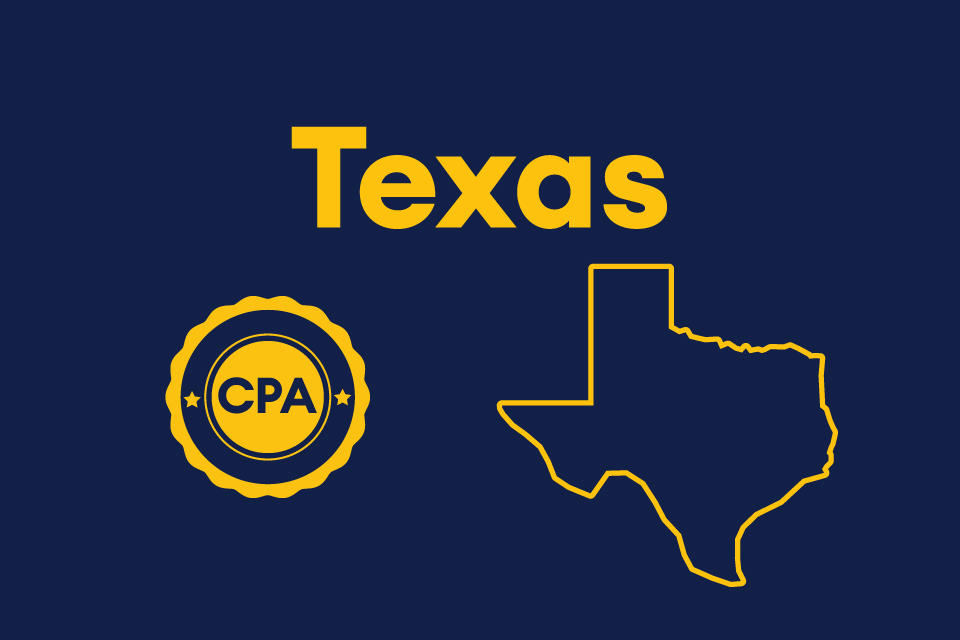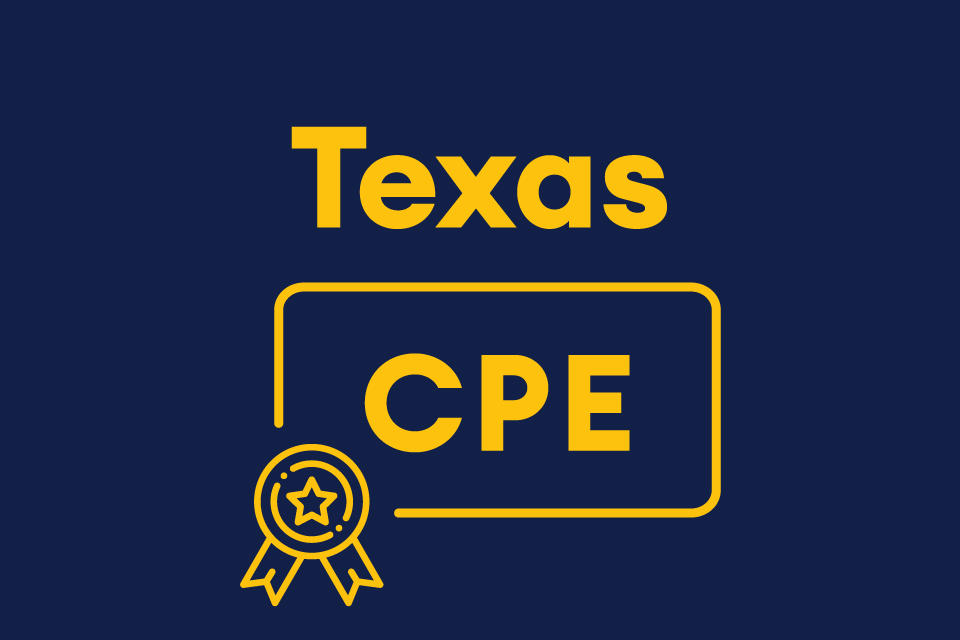Texas CPA requirements
Obtaining your CPA license can lead to improved career and income opportunities, but what do you have to do to get it? While we highly recommend checking with the Texas Board of Accountancy for more specific details, this overview of the Texas CPA requirements will help you get on the path to success.
CPA requirements in Texas
Texas requires CPA candidates meet specific education, experience, and ethics requirements prior to earning their license. Be sure to check with the state board for more detailed and up-to-date information.
Education requirements
All CPA candidates must meet the education hold a bachelor's degree and complete a total of 150 semester (225 quarter) hours of college credits or holds a graduate degree. Of those semester hours, candidates must complete 24 hours of accounting or equivalent courses as determined by board rule.
Experience requirements
All CPA candidates must complete at least one year of work experience acceptable to the board, including experience providing a service or advice involving accounting, attest services, management or financial advisory or consulting services, tax services, or other services the board considers appropriate.
Ethics requirements
- In addition to education and experience, Texas also has ethics requirements, including:
- Taking an Oath of Office
- Taking a four-credit ethics course
- Completing the Texas Rules of Professional Conduct with a score of 85 percent or higher. This exam is open-book and emailed to you after passing the CPA Exam.
Sources:
Texas CPA license renewals
Texas CPA license renewals are based on the last day of the licensed individual’s birth month, and occur in three-year periods.


